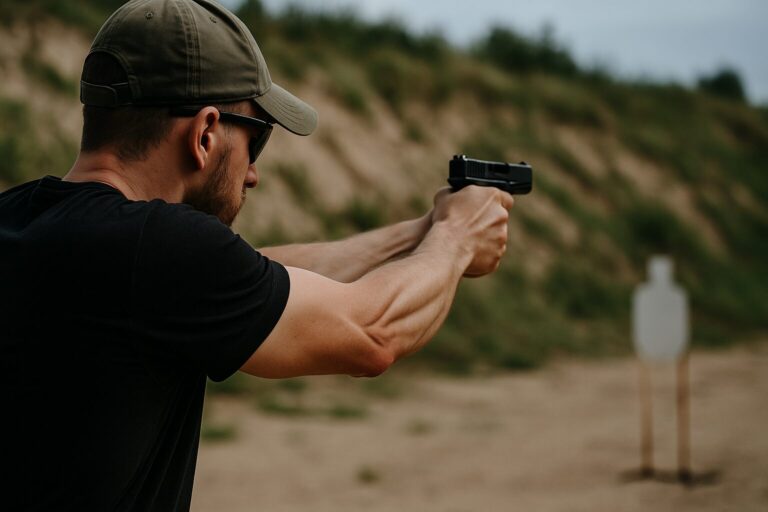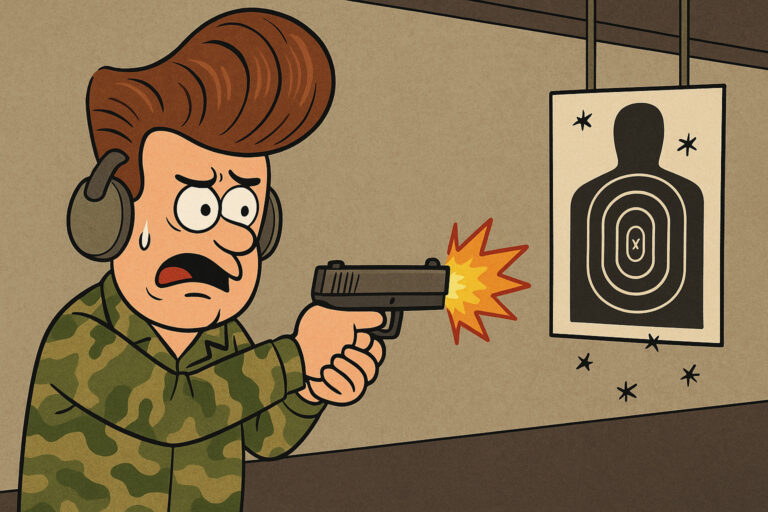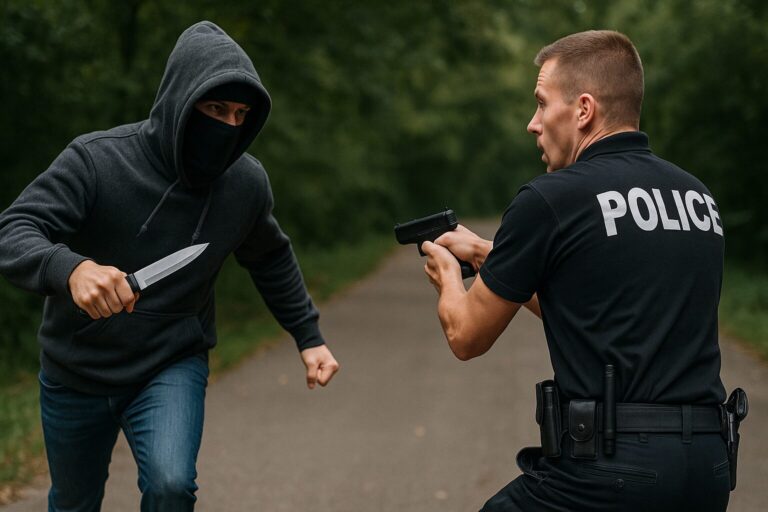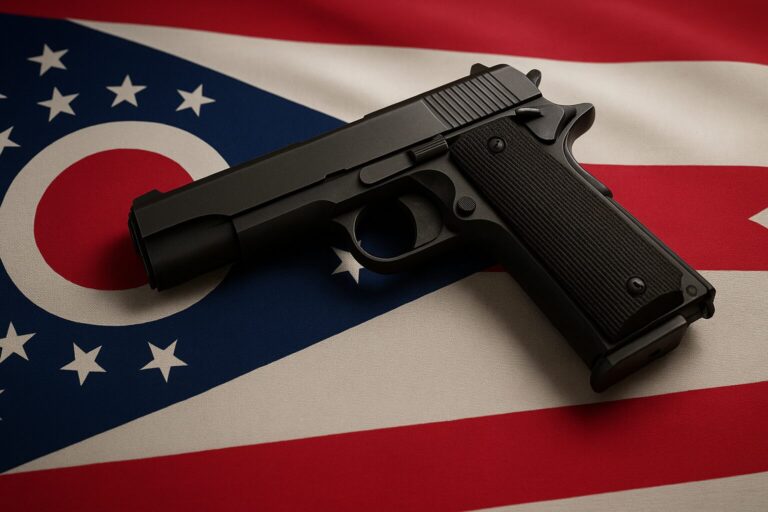
Introduction
Since the earliest centuries of Christianity, theologians have sought to understand the greatest spiritual traps that lead humanity away from God. This reflection resulted in what we now call the Seven Deadly Sins.
Far from being just a list of “prohibitions,” these sins represent vices that lead to other sins and create a spiral of moral, social, and spiritual self-destruction.
In Catholicism, the Seven Deadly Sins were popularized in the 6th century by Pope Gregory the Great and later systematized by Saint Thomas Aquinas. They are: pride, greed, lust, envy, gluttony, wrath, and sloth (or acedia).
But what does this have to do with armed combat and with the citizen who seeks to prepare himself to defend his life, his family, and his freedom? The answer: everything.
Armed combat is not only about technique or equipment; it is also about virtue, discipline, temperance, and control of one’s own character. Just like in spiritual life, vices can ruin the warrior even before the fight begins.
Pride – The Fall Before the Fight
In Catholic teaching, pride is the greatest of sins, for it is the root of all others. It is putting oneself in the place of God, believing to be self-sufficient and refusing divine grace (Proverbs 16:18 – “Pride goes before destruction, a haughty spirit before a fall.”).
In combat, pride shows when the operator thinks he knows everything. It is the student who refuses correction, the instructor who stops learning, the fighter who despises basic drills.
The result is predictable: stagnation, critical errors, and ultimately, death. Just as pride leads to spiritual downfall, pride in combat leads to technical stagnation and defeat.
Greed – The Cost of Not Investing in Your Life
In Catholicism, greed is the disordered attachment to material goods, even when it prevents a greater good (1 Timothy 6:10 – “For the love of money is the root of all kinds of evil.”).
In shooting and training, greed is the practitioner who saves on what is essential: ammunition, training, and weapon maintenance.
This “savings” comes at a very high price. On the day of the fight, when every second counts, the untrained operator pays with his own life for the money he refused to spend. In combat, greed means refusing to invest in your own survival.
Lust – The Idolatry of Gear
For the Church, lust is disordered desire, turning something good into an idol (Catechism of the Catholic Church 2351 – “Lust is disordered desire for or inordinate enjoyment of sexual pleasure.”).
In the world of combat, lust shows up as an excessive fascination with guns, accessories, and “gear trends,” putting equipment above training.
The warrior dominated by lust swaps out stocks, buys the latest optics, paints his rifle in camouflage — but does not practice stance, grip, or trigger control. The result: the look of a warrior, the efficiency of an untrained civilian.
Envy – The Sideways Glance That Distracts
In Christianity, envy is sadness at the good of another (Proverbs 14:30 – “A heart at peace gives life to the body, but envy rots the bones.”). It is wishing for others to lose what they have, rather than striving to grow yourself.
In training, envy is wasting time comparing gear, performance, or results with others.
This corrodes motivation. Instead of measuring personal progress, the shooter obsesses over beating his training partner rather than his own performance from yesterday. In combat, this mindset is fatal: the goal is not to be better than your buddy, but to be better than the enemy.
Gluttony – Consumption Without Purpose
In Catholic tradition, gluttony is more than overeating; it is consuming without moderation or purpose (Philippians 3:19 – “Their destiny is destruction, their god is their stomach, and their glory is in their shame.”).
In shooting, gluttony is wasting ammunition, “making noise” at the range without following a training plan.
A disciplined warrior knows that every round fired must have a purpose. Training with method is the antidote to gluttony: what matters is not how many rounds you shoot, but the quality of each repetition.
Wrath – When Emotion Turns Into Your Enemy
For the Church, wrath is not merely feeling anger but letting it control you, allowing hatred to guide your actions (Ephesians 4:26 – “In your anger do not sin: Do not let the sun go down while you are still angry.”).
In armed combat, wrath is acting on impulse, breaking safety protocols, or overreacting.
A mature warrior keeps his cool even when insulted, attacked, or under extreme pressure. A cool head is as powerful as a pistol — it decides whether there will be a necessary shot or an avoidable tragedy.

Sloth – The Most Lethal Sin
Sloth, or acedia, in Catholic teaching is more than laziness: it is neglecting what is good, spiritual apathy (Proverbs 6:9-11 – “How long will you lie there, you sluggard? When will you get up from your sleep?”).
In combat, sloth is the operator who doesn’t train, doesn’t clean his weapon, doesn’t review doctrine, doesn’t maintain physical conditioning.
Sloth kills silently. When the fight comes, there is no way to make up for lost training. Preparation is daily.
Conclusion
The Seven Deadly Sins, viewed through the lens of combat, are a call to reflection. Just as a Christian must cultivate virtues to overcome vices, a warrior must develop discipline, humility, and temperance to overcome his weaknesses.
Combat is a mirror of life: those who let pride, laziness, or anger dominate them will inevitably face bitter consequences.
A true warrior is not just someone who carries a weapon, but someone who carries virtues — someone who recognizes his own faults before stepping into the arena.
Next time you train, remember: more than hitting the target, the goal is to achieve excellence. Defeat the Seven Deadly Sins of Combat, and you will be one step closer to winning the most important battle — becoming a better man.








